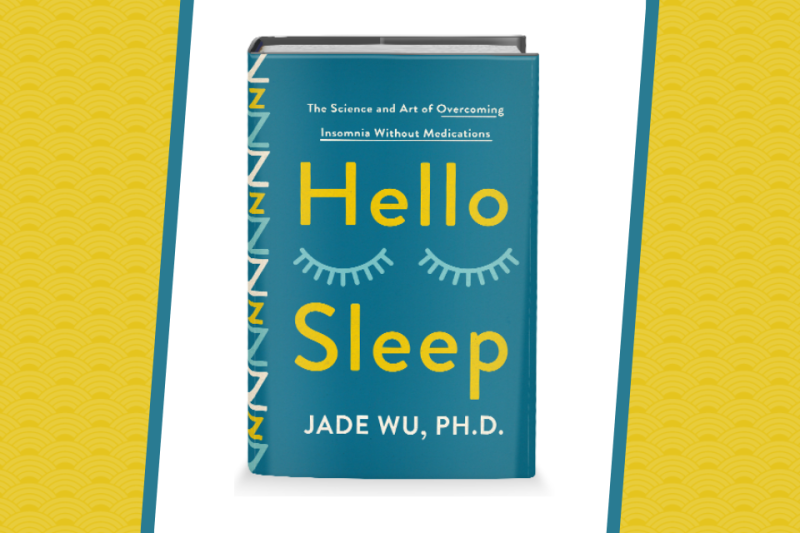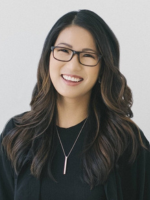
Whether it’s not being able to fall asleep for hours or waking up cranky after a restless night, sleep trouble is a nearly universal human experience. In 2022, 70 million Americans reported having some kind of sleep disorder, with insomnia being the most prevalent.
Now, there’s a new resource for these struggling sleepers: Jade Wu, PhD, DBSM, behavioral sleep medicine psychologist and researcher, recently published Hello Sleep: The Science and Art of Overcoming Insomnia Without Medications, a book that provides tailored solutions to individuals experiencing sleep problems. It’s the culmination of years of research and clinical practice, packed into a short, engaging must-read for those looking to improve their slumber.

Wu, an associate in research in the Department of Psychiatry & Behavioral Sciences, has been researching sleep and treating patients with sleep-related issues for years. In an interview, Wu shared that she was first inspired to study sleep at the young age of five when her father took her to a sleep lab for astronauts.
After that point, her fascination with sleep just stuck. Throughout her career, Wu repeatedly observed that sleep is a factor in most, if not all, clinical issues. “I was training in anxiety and depression treatments and Parkinson's disease. Everywhere I looked—anxiety, depression, Parkinson's, PTSD, eating disorders—one line across all of it was that people were not sleeping well,” she said. “So I just thought, let's get to the common denominator.”
Wu’s work is multi-faceted, but one concept she strives to help people understand is insomnia. “Usually people think that ‘insomnia’ means sleep deprivation. Really, a lot of people with insomnia are getting either enough sleep or close to enough sleep,” Wu said. “Either their quality sleep is not good, the way that they're sleeping, or their relationship with sleep is not good.”
“Oftentimes, people with insomnia are trying too hard to control their sleep. And it's actually ruining their relationship with it.”
— Jade Wu, PhD, DBSM
Most people don’t think about engaging in an active relationship with sleep, but Wu’s key takeaway is just that: think of sleep as one would think of a friend. “Let’s think about sleep as a friend, not an engineering problem,” Wu said. “Because nowadays everybody is trying to optimize things. Oftentimes, people with insomnia are trying too hard to control their sleep. And it's actually ruining their relationship with it.”
Some ways to start treating sleep like a friend include waking up at a consistent time daily; listening to your body when it tells you to sleep; and not blaming everything on sleep issues when other factors could be involved (e.g., attributing fatigue solely to a lack of sleep instead of considering the impact of excessive exercise, low hydration, or mental health challenges).
Whether you choose to heed Wu’s advice or not, one thing is certain: sleep is important. In her words, “Sleep is key to health and happiness.”
Hello Sleep: The Science and Art of Overcoming Insomnia Without Medications is available on the publisher’s website.